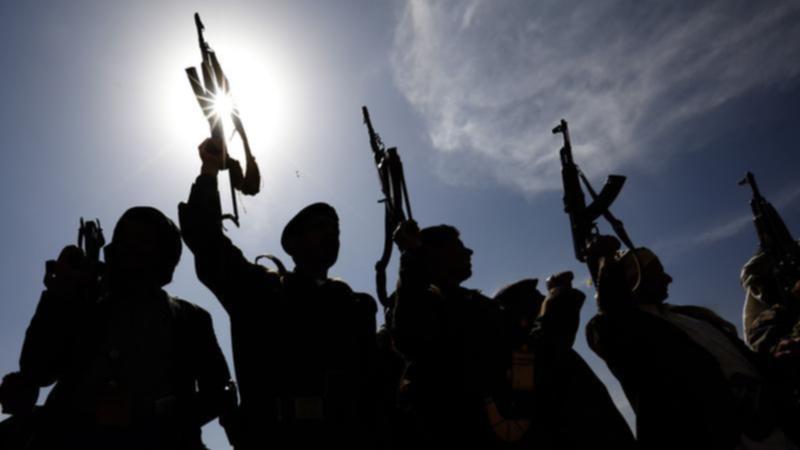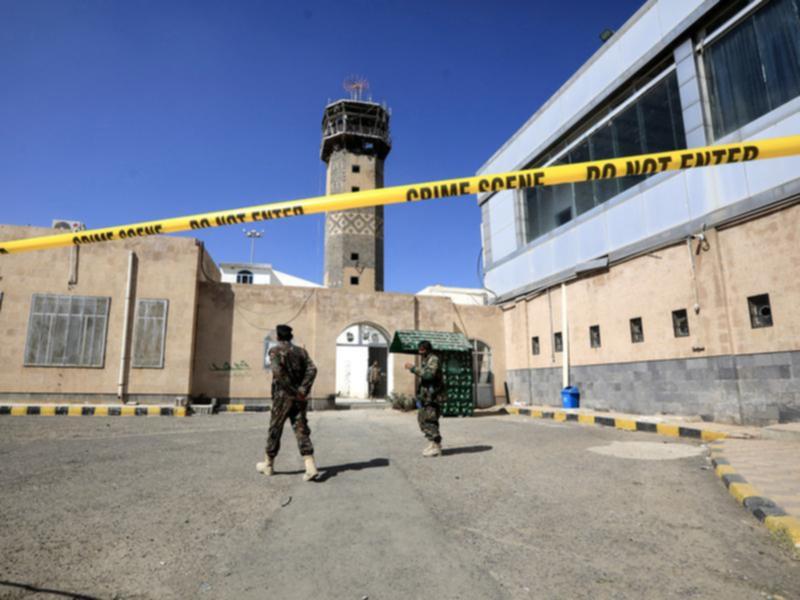THE NEW YORK TIMES: Israel struggles to halt attacks from faraway foe once off radar

JERUSALEM — For years, the Houthis were the enemy most Israelis didn’t know they had.
Now the Iranian-backed militia that controls much of northern Yemen, more than 1,000 miles from Israel, is keeping them up at night — literally — with a string of attacks on Israeli soil. And challenged by a lack of precise intelligence on the whereabouts of the group’s leaders and weapons stores, analysts say, Israel is struggling to stop them.
After months of sporadic missile and drone launches toward Israel in solidarity with Hamas, their Palestinian ally in the Gaza Strip, the Houthis recently escalated a campaign against Israel, launching ballistic missiles toward it almost nightly over the past week.
Sign up to The Nightly's newsletters.
Get the first look at the digital newspaper, curated daily stories and breaking headlines delivered to your inbox.
By continuing you agree to our Terms and Privacy Policy.The militia appeared undeterred even after Israeli warplanes on Thursday carried out their fourth and most brazen round of retaliatory strikes in Yemen, damaging the international airport in the capital, Sanaa, and other infrastructure.
The Houthis then fired a missile toward Tel Aviv before dawn Friday and another around 2 a.m. Saturday, setting off air raid sirens. Both missiles were intercepted, but the sirens sent millions of people running into bomb shelters in their pajamas.
The militia has withstood years of bombardment by a Saudi-led coalition that tried to oust it, pressure from Emirati-backed forces supporting the internationally recognized government in Yemen, and U.S. and British strikes in retaliation for Houthi attacks on shipping in the Red Sea. Now it is displaying a similar resilience against Israel.
“We have a problem,” said Zohar Palti, a former director of intelligence in Mossad, Israel’s foreign intelligence service, and a former director of policy in Israel’s Ministry of Defense. Israel, on its own, does not have a “patent” for solving the problem, he added.
Israel’s security establishment has never prioritized Yemen and has not expended efforts in gathering intelligence on the Houthis over the years, experts say.
Israel had “too many balls in the air,” Palti said, citing Iran and its nuclear program, Hamas militants in Gaza, the Iran-backed Hezbollah militia in Lebanon and dealing with counterterrorism the world over.
“It’s a matter of investment,” he said. “It may take days, weeks or months, but in the end we will bring the intelligence.”
Still, Palti added, it is unlikely to be Israel’s top priority, with many preferring to invest in thwarting Iran’s nuclear ambitions.
The Houthis began firing on Israel soon after the Oct. 7, 2023, Hamas-led assault on the country, which prompted the war in Gaza. The militants said they were acting in solidarity with Hamas and Palestinians in general. The Houthis also tried to blockade Israel by launching missiles and drones at cargo vessels crossing the Red Sea, one of the world’s busiest shipping lanes, significantly disrupting international trade.
At first, the threat to Israel appeared distant compared with that posed by Hamas on its southern border and Hezbollah on its northern one. Houthi attack drones would take about 10 hours to reach Israel’s southern port of Eilat. They and the occasional ballistic missile fired from Yemen were often intercepted far from Israel’s territory or airspace with the help of international forces in the Persian Gulf region and were regarded by many Israelis as a somewhat bizarre nuisance.
But a drone fired by the Houthis in July took a different route. Flying in from the west over the Mediterranean coast, it evaded Israel’s defenses and slammed into an apartment building in Tel Aviv, the country’s commercial center, killing one man and wounding several others. Israel struck back the next day with its first barrage of airstrikes on Yemen, bombing the vital Red Sea port of Hodeida, which is controlled by the Houthi militia.

The long-distance exchanges have continued even as Israel’s multipronged battles in the region appear to be winding down. Hamas’ military capabilities have been severely diminished, a ceasefire between Israel and Hezbollah went into effect in late November and the government of Bashar Assad in Syria has fallen. But the Houthis have begun escalating attacks on Israel, vowing to continue until Israel ends the war in Gaza.
The warhead of one intercepted missile badly damaged a school in a Tel Aviv suburb this month, landing at night when the building was empty. Another missile got through and struck a playground in Tel Aviv, damaging the surrounding apartment buildings and slightly wounding 16 people.
Israel’s leaders have since ratcheted up their tough talk.
“The Houthis, too, will learn what Hamas, Hezbollah, the Assad regime and others have learned,” Prime Minister Benjamin Netanyahu said Wednesday.
On Thursday after the Israeli strikes, Netanyahu said in an interview with an Israeli TV station, “We are just getting started with them,” referring to the Houthis. Israel Katz, the Israeli defense minister, has vowed to hunt down Houthi leaders.
Still, analysts note that it took the U.S. a decade to track down and kill Osama bin Laden, al-Qaida’s founder, and it took Israel more than a year after the Oct. 7 attack to close in on and kill Yahya Sinwar, the leader of Hamas, in Gaza, a tiny coastal enclave. If Israel knew where the Houthi leaders were, it would probably have killed them already, the analysts say.
In addition to the airport in Sanaa, a Houthi stronghold, the Israeli military also struck the Hezyaz and Ras Kanatib power stations and infrastructure in the ports of Hodeida, Salif and Ras Kanatib on Yemen’s western coast. Israel described the targets as “military infrastructure used by the Houthi terrorist regime for its military activities.”
At least four people were killed and 21 others wounded in the attack Thursday, according to the Saba state news agency, citing Yemen’s Health Ministry. The director-general of the World Health Organization, Dr. Tedros Adhanom Ghebreyesus, who was at the airport waiting to board a plane at the time, said in a social media post that the air traffic control tower, the departure lounge and the runway were damaged.
But analysts say that damaging Yemen’s national infrastructure is not likely to stop the Houthis from attacking Israel.
“They took everything by force, they don’t rule by consensus, they don’t care and they are willing to go very, very far,” said Farea Al-Muslimi, a Yemeni research fellow at Chatham House, a London-based research institute, of the Houthis.
With the leadership of Hezbollah and Hamas decimated and the Assad government gone, the Houthis have “jumped into the front carriage of the axis-of-resistance train,” Al-Muslimi said, referring to the Iranian-backed forces in the region that have been fighting Israel.
Since Oct. 7, 2023, he said, the Houthis have cemented their presence as a global actor, and they are likely to hold out in their fight against Israel until there is a ceasefire in Gaza.
Israeli officials and analysts are now arguing that the Houthi challenge is not only Israel’s problem, particularly given the distance between Israel and Yemen.
Noting a “stark increase” in Houthi missiles fired at Israel, Lt. Col. Nadav Shoshani, a spokesperson for the Israeli military, said Saturday, “The Houthis are a global problem.”
Israel acts in close coordination with U.S. forces in the region. U.S. Central Command forces have attacked Houthi targets in Yemen in recent days, and the missile fired at Israel from Yemen early Friday was intercepted with the help of the U.S. THAAD missile defense system that was recently deployed in Israel.
Assaf Orion, a retired Israeli brigadier general and an international fellow at the Washington Institute for Near East Policy, noted that a campaign against the Houthis in Yemen is not, so far, one of the war goals approved by the Israeli Cabinet since Hamas attacked last year.
“There are no simple solutions to complex problems,” he said. “Ultimately, this is not just a faceoff between Israel and the Houthis but part of a regional and international struggle.”
This article originally appeared in The New York Times.
© 2024 The New York Times Company
Originally published on The New York Times
